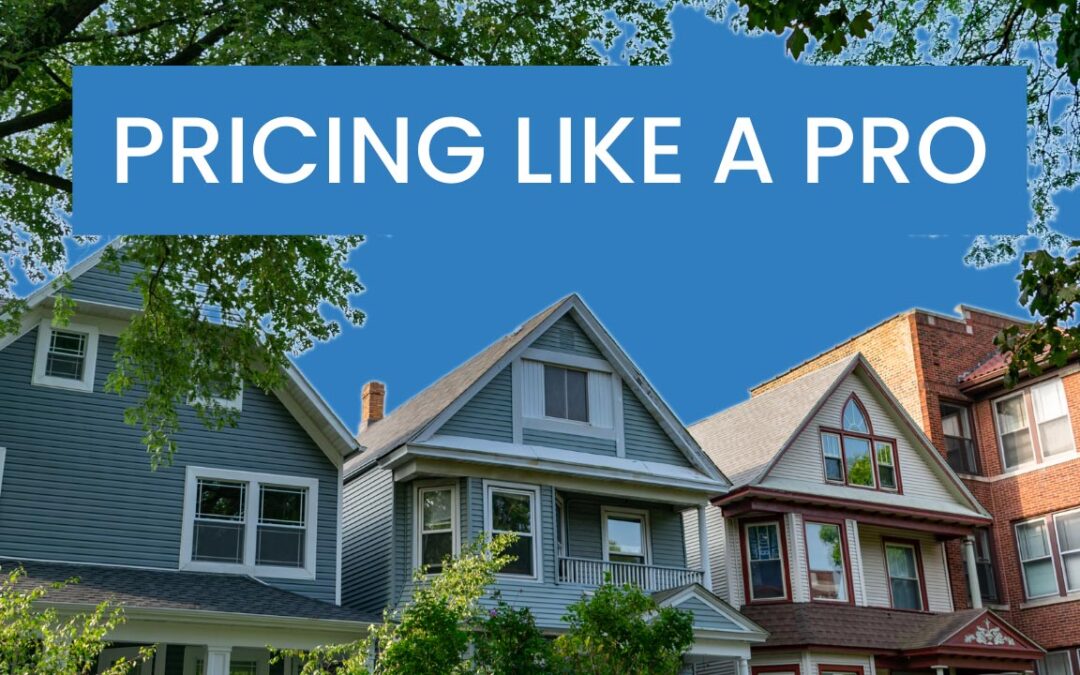If you’re gearing up to sell your home in Chicago, one of the most critical decisions you’ll make is how to determine market value in your specific real estate market (or Chicago Neighborhood). Home pricing strategies can vary, but the best real estate agents in Chicago agree that the initial asking price significantly impacts the selling process and will determine how many potential buyers view the home.
Here’s a comprehensive guide to help you set the right asking price for your property based on the Chicago area market value :

1. Comparative Market Analysis (CMA):
When working with a Chicago real estate agent, they’ll provide you with a CMA based on your local market (or Chicago Neighborhood).
A CMA compiles sales data of recently sold homes from your area, considering home details, days on the market, and final sale prices.
Your Chicago real estate agent should use recently sold properties that are similar to your home to estimate an accurate list price better.
Comparable sales should consider whether it’s a buyer’s market, a hot seller’s market, and other intangible factors like whether the comparable sales close during a holiday season or anything else that could affect the market value.
Guidelines for Comparable Properties (Comps):
-
Comps should be within ¼ to ½ mile from your home or based on local market factors like neighborhood boundaries and school district boundaries, which can affect the market value of your home.
-
Chicago real estate agents who work in densely populated real estate markets may even recommend a smaller search area to price your home with comparison sales based on recently sold homes (or condos) within your specific building.
-
The comps (recent sales) should have been listed and sold within the last three months, but home values could be more difficult to predict in a hot real estate market (seller’s market).
-
Comparable properties should be roughly the same age and have square footage within 10 percent of your home’s size.
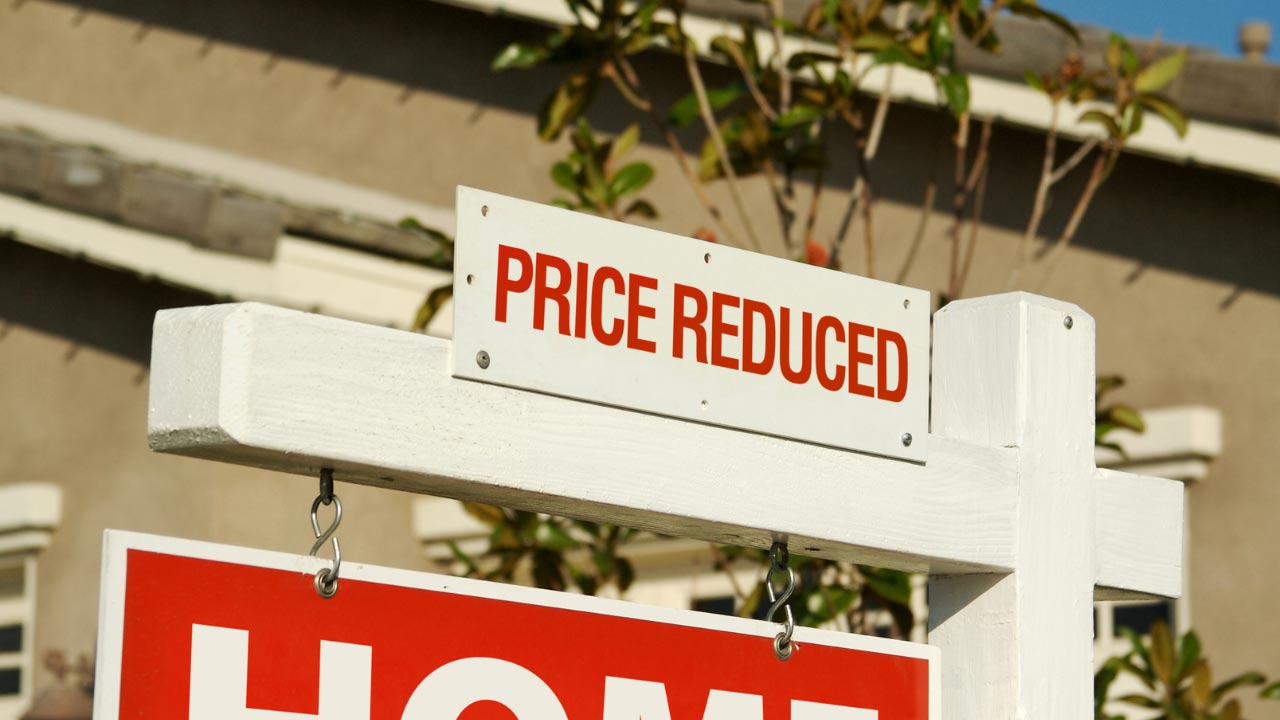
2. Home Pricing Strategies from other Sellers and Expired Listings:
In real estate, an “expired listing” refers to a property that has been listed for sale but did not sell within the time frame specified in the listing agreement between the seller and their real estate agent. Once the listing expires, the contractual obligations between the seller and the agent generally come to an end unless both parties decide to renew the agreement.
Expired listings can occur for a variety of reasons, including:
-
Overpricing: The home may have been priced too high compared to similar properties in the area.
-
Poor Marketing: Inadequate advertising or poor online presence could result in fewer potential buyers seeing the property.
-
Condition of the Property: The home may require repairs or updates that make it less appealing to buyers.
-
Economic Factors: Market conditions like high interest rates or a slow economy can impact the sale.
-
Limited Exposure: The property may have needed to be shown to more potential buyers.
-
Ineffective Agent: Sometimes the agent’s lack of experience or expertise can contribute to the failure to sell the property.
What can you learn from expired listings and other sellers in your area?
-
Review expired listings in your area to understand pricing mistakes.
-
Understand if other factors are playing a role in expired listings. Are the finishes in the home underwhelming compared with other listings sold in the market? Are the marketing images and videos worse than similar listings?
-
Analyze original list prices compared to final sale prices to avoid overpricing.
-
Was the initial asking price too high, or was the home’s selling price lower than the initial asking price?
-
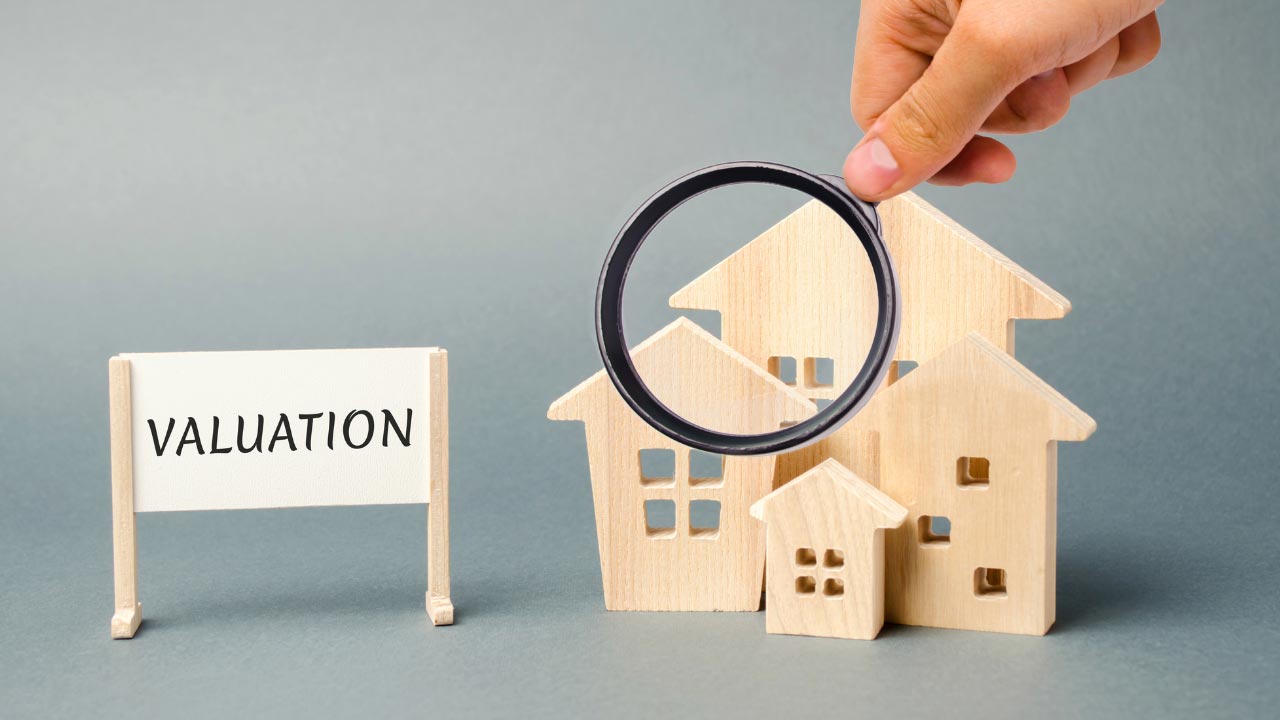
2. Home Pricing Strategies from other Sellers and Expired Listings:
In real estate, an “expired listing” refers to a property that has been listed for sale but did not sell within the time frame specified in the listing agreement between the seller and their real estate agent. Once the listing expires, the contractual obligations between the seller and the agent generally come to an end unless both parties decide to renew the agreement.
Expired listings can occur for a variety of reasons, including:
-
Overpricing: The home may have been priced too high compared to similar properties in the area.
-
Poor Marketing: Inadequate advertising or poor online presence could result in fewer potential buyers seeing the property.
-
Condition of the Property: The home may require repairs or updates that make it less appealing to buyers.
-
Economic Factors: Market conditions like high interest rates or a slow economy can impact the sale.
-
Limited Exposure: The property may have needed to be shown to more potential buyers.
-
Ineffective Agent: Sometimes the agent’s lack of experience or expertise can contribute to the failure to sell the property.
What can you learn from expired listings and other sellers in your area?
-
Review expired listings in your area to understand pricing mistakes.
-
Understand if other factors are playing a role in expired listings. Are the finishes in the home underwhelming compared with other listings sold in the market? Are the marketing images and videos worse than similar listings?
-
Analyze original list prices compared to final sale prices to avoid overpricing.
-
Was the initial asking price too high, or was the home’s selling price lower than the initial asking price?
-

4. Mind Psychological Pricing:
We’ve all seen it before: products priced at $19.99 instead of a flat $20, or a car listed for $29,995 instead of $30,000. This pricing strategy is known as “psychological pricing,” and it’s designed to make a price appear slightly less than a round number, thereby making the product seem like a better deal. The same principle can apply when pricing your home.
Why Does It Work?
Studies have shown that the human brain processes $299,999 as significantly less than $300,000, even though the actual difference is just $1. This is because we tend to focus more on the first number we see, which in this case is 2, not 3. By pricing your home just below a rounded number, you can make it appear more affordable and attractive to potential buyers.
Avoid Obscure and Random Prices
While psychological pricing can be effective, avoid setting your home’s price at a random or obscure number like $123,456. This can confuse or even deter potential buyers, as it may make your pricing strategy seem less credible or thoughtfully calculated. Buyers may wonder if there’s something wrong with the property, or they might question your seriousness as a seller.
Real Estate Agents and Psychological Pricing
Experienced real estate agents often use psychological pricing as part of a broader pricing strategy. They understand the markets and the psychology of buyers, and they can help set a price that will attract the most attention. Agents will often suggest listing a home at a price that’s just below a price bracket, as potential buyers usually set their online search parameters using rounded numbers. For example, if someone is searching for homes up to $300,000, pricing your home at $299,999 ensures it shows up in their search results, thereby increasing its visibility.
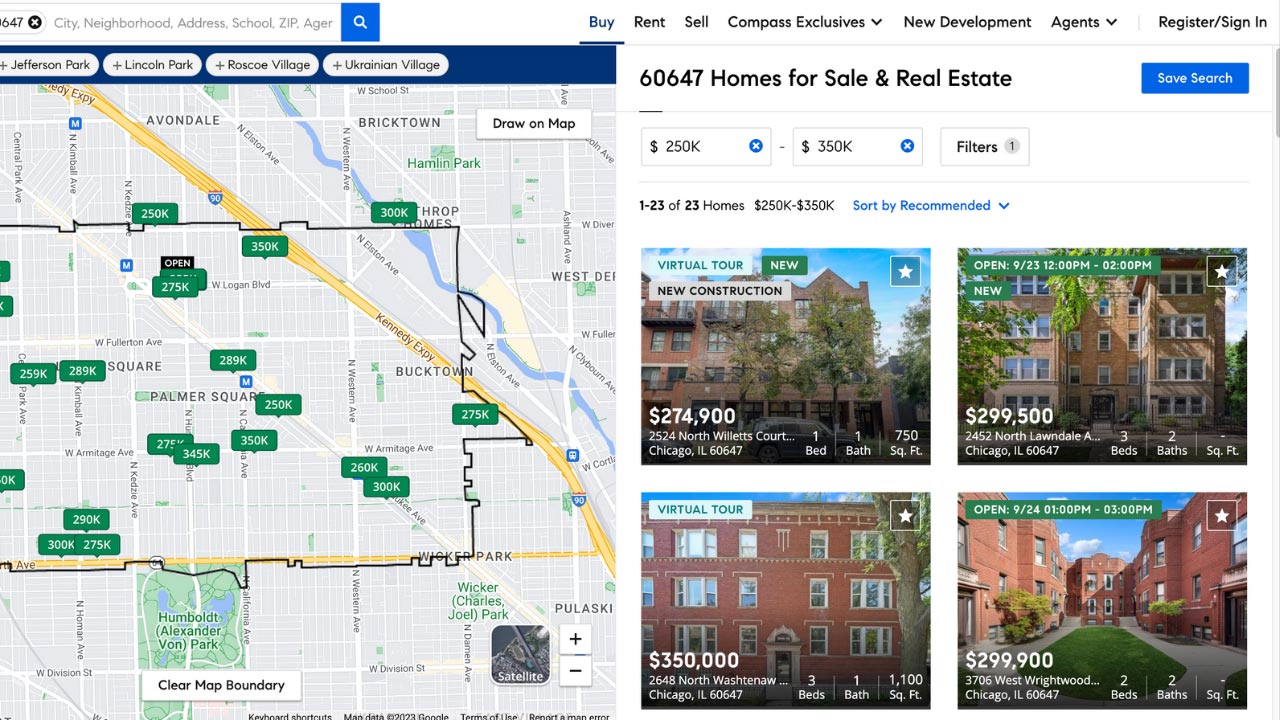
5. Consider Online Search Ranges:
The online home search process usually involves setting a minimum and maximum price. If your home is priced even slightly outside of a common search range, you may miss out on a significant portion of potential buyers. For instance, if a buyer sets a search range up to $500,000, and your home is listed at $500,100, your property won’t appear in their search results.
The Psychology of Price Filters
People often set search parameters based on rounded numbers or numbers that signify specific financial milestones. For example, they might look for homes under $300,000 or between $400,000 and $450,000. These are not just arbitrary numbers; they often reflect budget constraints, loan qualifications, or mental benchmarks for what a buyer considers “affordable.”
How to Price Your Home Within Popular Search Ranges
Research the Market: The first step is to understand the pricing trends in your area. Take note of how homes are priced and what price ranges seem to be more prevalent.
Consult Your Agent: A knowledgeable real estate agent will have insights into the most commonly used search ranges among buyers in your market. Use this information to make an informed decision.
Be Flexible but Strategic: While it’s important to be realistic about your home’s value, consider adjusting the price to fall within a popular range if it’s reasonable to do so.
Test and Adjust: After your home is listed, monitor how many views and inquiries it receives. If it’s not attracting enough attention, consult with your agent about possibly adjusting the price to fall into a more popular search range.
Case Study: Pricing for Visibility
Imagine you’re considering listing your home for $505,000 based on comparable sales and its condition. However, your real estate agent informs you that a significant number of online searches in your area cap at $500,000. By slightly adjusting the listing price to $499,999, you’d fall within a more popular search range, thus potentially attracting more views and, ultimately, offers.
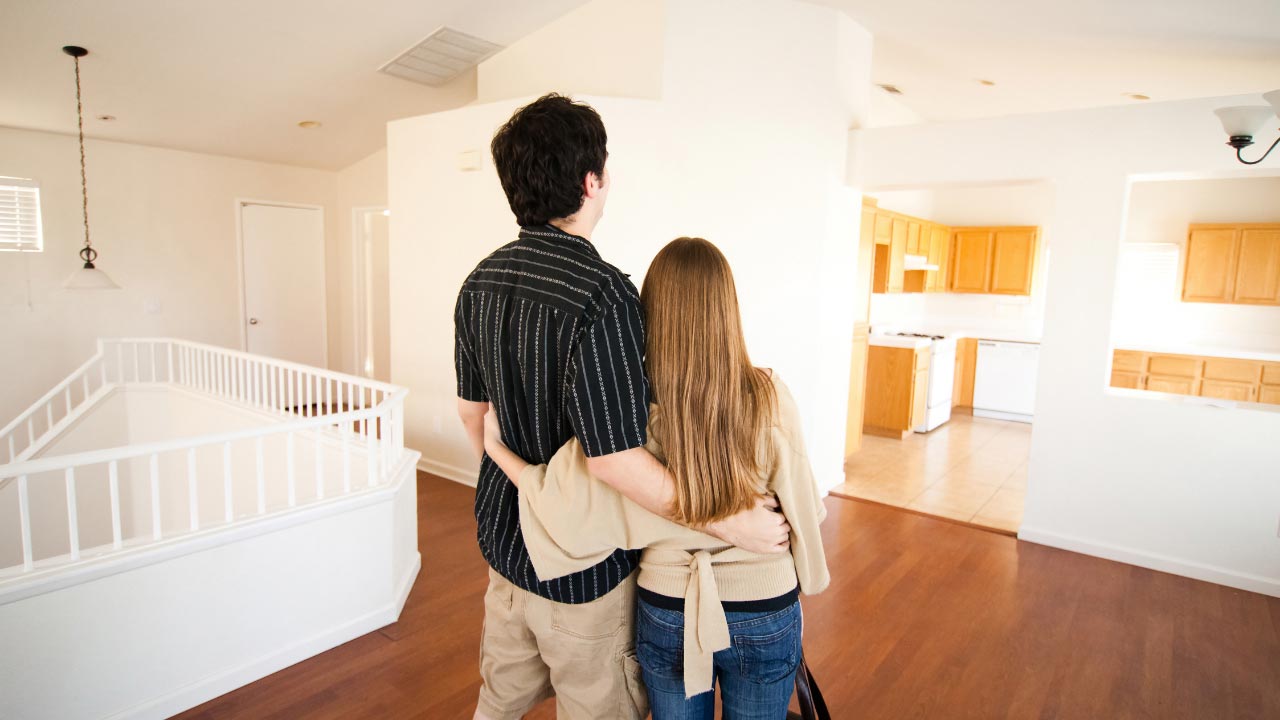
6. Be Objective Like a Buyer:
It’s natural to be emotionally attached to your home. You might value certain features or improvements more than a potential buyer would simply because you have personal memories associated with them. However, buyers don’t have the same emotional connection and will compare your home to others in the market objectively. Overpricing due to emotional reasons can deter these buyers, leading to longer time on the market and possibly even forcing you to sell at a lower price later on.
The Buyer’s Perspective: Objectivity is Key
When buyers look at homes, they’re comparing square footage, the number of bedrooms and bathrooms, location, condition, and other quantifiable factors. They’re not concerned with the personal sentiment you have for your rose garden or the mural you painted in the kids’ room. So, how can you adopt this objective viewpoint?
Compare, Compare, Compare
Check Comparable Sales: Look at recent sales of similar homes in your area. Pay attention to how their features and condition compare to yours. Are they more updated? Do they have more square footage?
Visit Open Houses
If possible, visit some open houses in your neighborhood. This will give you an idea of how your home stacks up against the competition.
Consult with a Real Estate Agent:
An experienced agent can provide a comparative market analysis that objectively evaluates how your home compares to others in the area. A local Chicago real estate agent that is familiar with market conditions can also make recommendations for home staging and possibly already have some buyers that are looking for similar homes.
Assess the Competition
Ask yourself: if you were a buyer, would you find nearby homes worth more or less than yours at the same price point? If other homes offer more value in terms of features, condition, or location, you may need to adjust your price or make improvements to enhance your home’s appeal.
Be Willing to Make Adjustments
Being objective might mean realizing that your initial price needs to be lowered compared to the competition. Or, your home offers more than others in the same price range, giving you room for a higher asking price. The key is to be willing to make adjustments based on an objective evaluation rather than emotional attachment.

4 House Pricing Strategies FAQ’s:
1. Is Zillow an Accurate Estimate of Home Value?
Online real estate websites that estimate a home’s value can be inaccurate, since they can’t account for specific local market conditions, or the effects of a hot seller’s market, buyer’s market can have on house pricing.
3. Will Improvements to My Home Increase the Home’s Value?
The best real estate agents in Chicago advise to price your home based on today’s market value using comparison sales of similar homes (which may have similar upgrades to your home, or even better upgrades). When pricing your home to sell, it’s important to remember that the improvements and upgrades you made may have depreciated in value or not be something most buyers place a high value on.
4. Should I hire a professional appraiser to help determine the list price of my home?
Deciding whether to hire a professional appraiser to determine the list price of your home depends on various factors, including the complexity of your property and the current market conditions. An appraisal can provide an objective, third-party assessment of your home’s value, which can be particularly useful if you have a unique property that’s difficult to compare with others in the area. An appraiser will consider aspects like location, square footage, condition, and recent sales of comparable homes to arrive at a valuation. While real estate agents often provide a Comparative Market Analysis (CMA) to help you set a list price, an appraiser’s report could offer additional insights that make your pricing strategy more accurate and compelling. However, it’s important to note that hiring an appraiser comes at a cost, usually a few hundred dollars, and it doesn’t replace the need for an agent’s expertise in marketing and negotiating. A real estate agent’s CMA will be enough for most properties to get the complete picture of your pricing options.
5. Will a pricing strategy of asking for a bit higher list price provide some room to negotiate?
No, Pricing a home too high will reduce the amount of potential buyers, since the higher price ranges will have fewer homes and fewer potential buyers. Even in a hot seller’s market, pricing a home at market price, could generate a bidding war and net more money for the home.
Setting the right asking price for your home is a critical aspect of the selling process, and it can significantly impact your success as a seller in the Chicago real estate market. Lastly, remember that online estimates of home value, like those on Zillow, may not always accurately reflect your home’s actual market value due to local conditions and market trends. It’s also essential to work with a reputable and skilled Chicago real estate agent who can provide expert guidance on your pricing strategy and help you navigate the complexities of the market. When pricing your home for sale, prioritize setting a competitive yet attractive price to attract potential buyers and increase your chances of a successful sale. Remember that pricing too high or too low can have adverse effects on your home sale, so finding that sweet spot is key to maximizing your return on investment.
